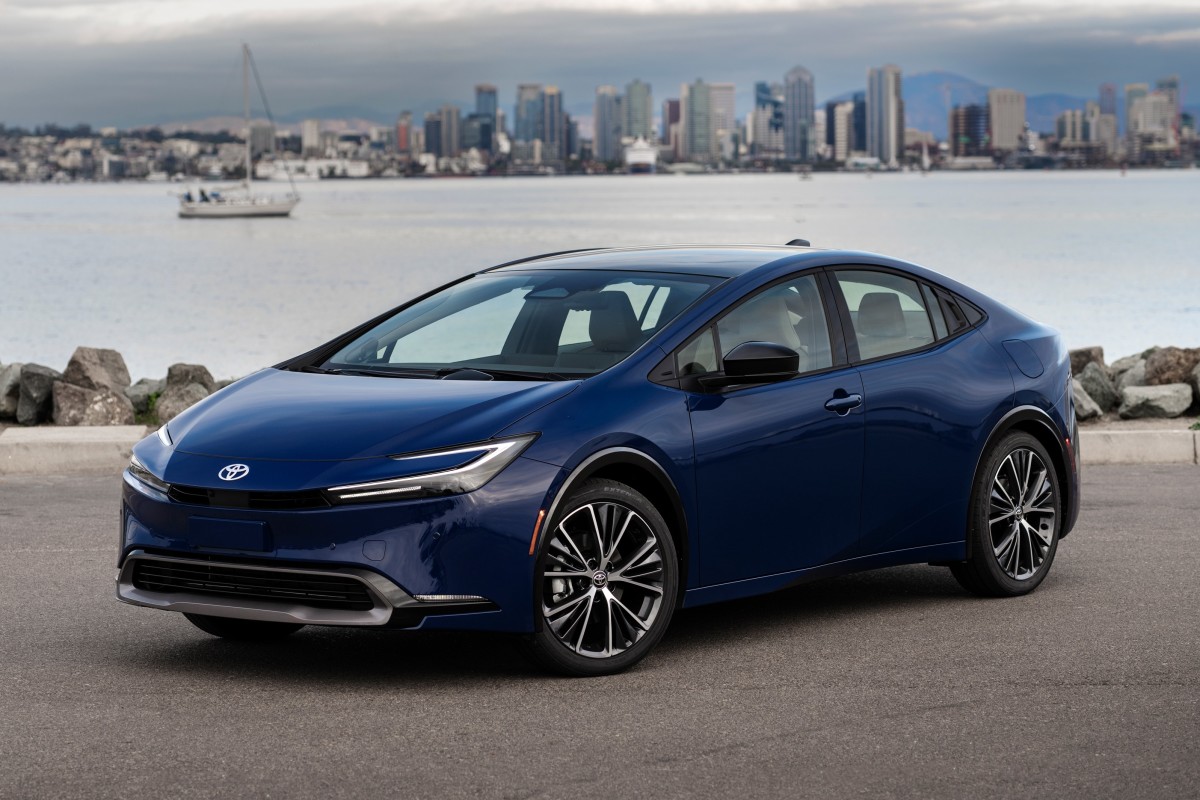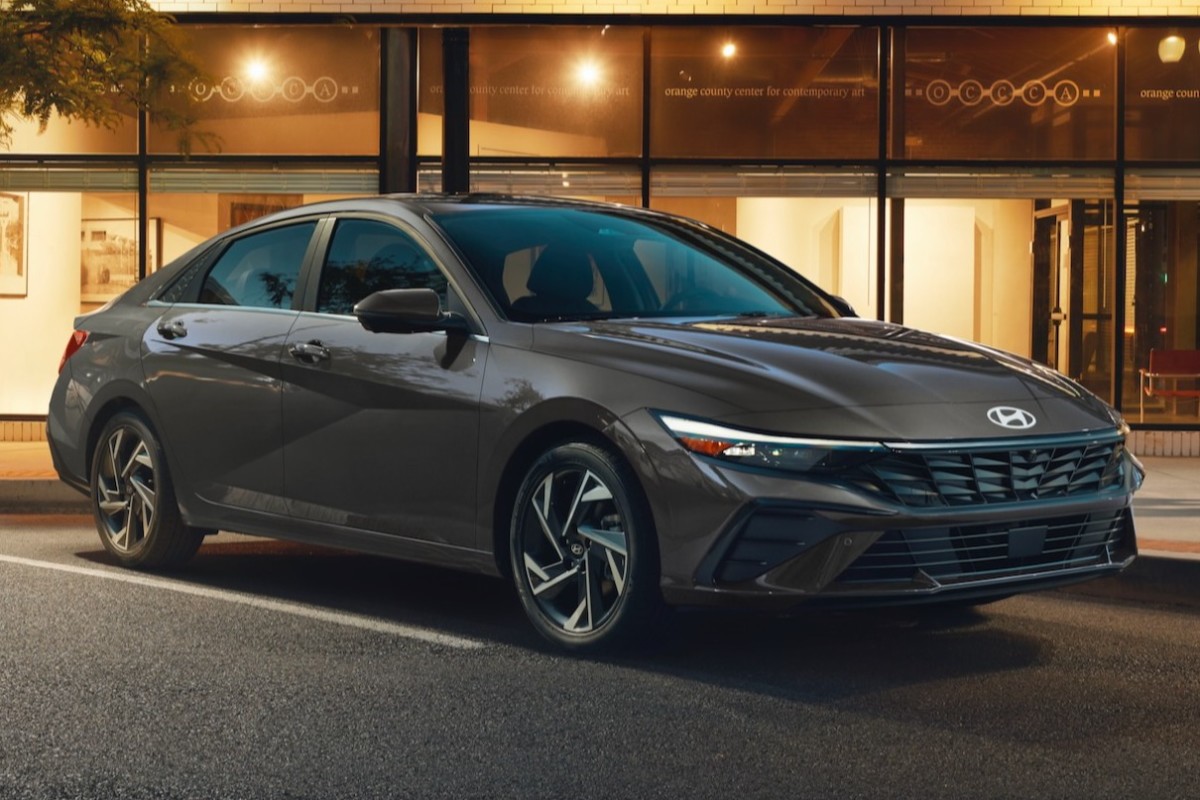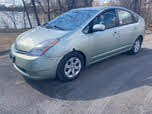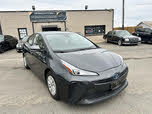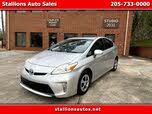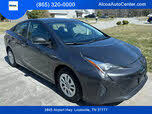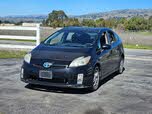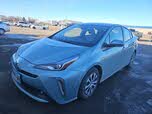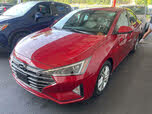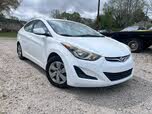Toyota Prius vs Hyundai Elantra
Overview | ||
Years produced | 2001-Present | 1992-Present |
MSRP | $27,950 | $21,625 |
Average price | $15,493 | $14,740 |
Listings | ||
Ratings & Reviews | ||
User reviews | ||
Expert reviews | 7.5 out of 10Read full review | 7.3 out of 10Read full review |
Pros & cons | Pros
| Pros
|
Summary | If the disparity between your income and the cost of living is getting you down, but you need a new set of wheels, consider the 2024 Prius. The Prius recently won the 2024 World Car Design of the Year, carries up to five people, and holds up to 23.8 cubic feet of cargo behind its back seat. All-wheel drive (AWD) and a plug-in hybrid powertrain are available, and the Prius gets up to 57 mpg in combined driving. Prices start at less than $30,000. Verdict: The 2024 Toyota Prius is the right car for lots of people. Blending intriguing design with comfortable front seats and a practical interior at an appealing price, the Prius is perfect for daily driving and will save you plenty of money at the gas pump. | For nearly 20 years over six generations, the Elantra established Hyundai as a provider of bottom-rung transportation. Not until the current seventh-generation model debuted in 2020 did the Elantra shed its cheap image and stand competitively with other compact sedans from Honda, Toyota, and Nissan. Hyundai always sold on low prices and long warranties. Now the Elantra is a genuinely sporty, well-constructed car that competes on actual substance—namely, how it drives and feels—and offers a wider range of trim levels. For 2024, a mild refresh brings more style and standard equipment. Verdict: Get past the strange bodywork and plasticky interior, and you’ll find a well-mannered sedan that is equally adept at being comfortable and economical as it is sporty and truly entertaining. |
Video | No video found | |
Popular Features & Specs | ||
Engine | 2.0L 194 hp I4 Hybrid | 2.0L 147 hp I4 |
Drive Train | FWD | FWD |
Seating Capacity | 5 | 5 |
Horsepower | 147 hp @ 6200 rpm | |
EV Battery Capacity | 0.9 kWh | |
MPG City | 57 | 32 |
MPG Highway | 56 | 41 |
Engine | ||
Engine Name | 2.0L 194 hp I4 Hybrid | 2.0L 147 hp I4 |
Torque | 132 lb-ft @ 4500 rpm | |
Horsepower | 147 hp @ 6200 rpm | |
Drivetrain | FWD | FWD |
Fuel Economy | ||
EV Battery Capacity | 0.9 kWh | |
MPG City | 57 | 32 |
MPG Highway | 56 | 41 |
Interior | ||
Seating Capacity | 5 | 5 |
Safety | ||
Front Crash Overall | 5 | 4 |
Side Crash Overall | 5 | 5 |
Dimensions & Capacity | ||
Cargo Space | 23.8 cu ft | 14.2 cu ft |
Curb Weight | 3097 lbs | 2725 lbs |
Height | 55.9 in | 55.7 in |
Length | 181.1 in | 184.1 in |
Width | 70.2 in | 71.9 in |
Wheelbase | 108.3 in | 107.1 in |
Maximum Payload | 860 lbs | 1133 lbs |
Number of doors | 4 | 4 |

By: CarGurus + AI
At CarGurus, our team of experienced automotive writers remain at the heart of our content operation, conducting hands-on car tests and writing insightful guides that are backed by years of industry experience. To complement this, we are harnessing AI to make our content offering more diverse and more helpful to shoppers than ever. To achieve this, our AI systems are based exclusively on CarGurus content, ratings and data, so that what we produce is both unique to CarGurus, and uniquely helpful to car shoppers.
